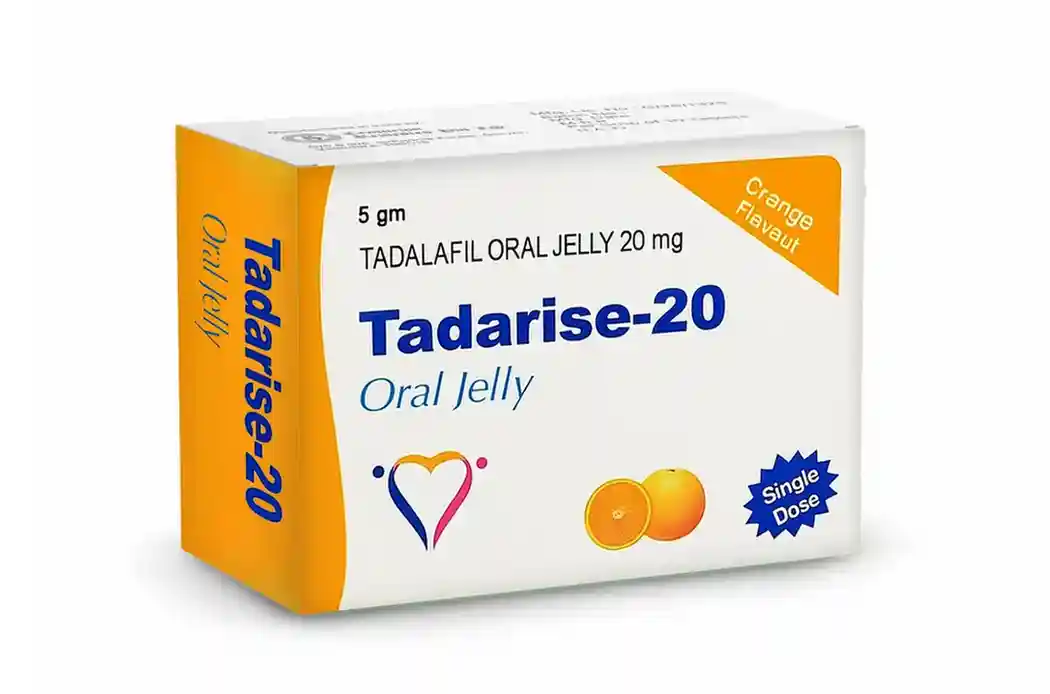When a well-known person talks publicly about sex, sexual problems, or mental-health struggles, it can do more than make headlines — it changes what people feel allowed to talk about. In the last decade, high-profile disclosures have helped push celebrity sexual health awareness into mainstream conversation. That visibility is changing male sexual wellness trends: more men are asking for help, pairing medical care with mental-health work, and having honest conversations with partners. At the same time, the link between mental health and sexual wellness has entered public view, making the issue less about performance and more about whole-person health.
The “celebrity effect”: why a story from a star moves people
We already know celebrities can influence health behavior. Classic examples include the “Angelina Jolie effect” — a documented spike in genetic testing after her public account of BRCA testing and preventive surgery — and many studies showing increased information-seeking and screening after celebrity health disclosures. When a public figure shares a personal health story, searches, hotline calls, and clinic visits often rise; the same dynamic applies with sexual-health topics. That attention both informs and normalizes conversations that used to be private.
A recent body of research also shows that celebrity disclosures can reduce stigma, especially for mental-health topics. That mechanism (visibility → curiosity → safer conversation) helps explain why men feel more comfortable raising sexual concerns in the current media climate.
Where men used to keep quiet — and why that’s changing
Historically, many men treated sexual problems as shameful or private, leading to under-reporting and delayed care. Erectile dysfunction, low libido and other issues are common: prevalence rises with age and is often linked to health conditions such as diabetes, cardiovascular disease, and depression. Yet studies show many men with symptoms never seek medical help. Celebrity openness helps reduce embarrassment and signals that seeking care is normal, not emasculating.
Real examples: celebrities who moved the needle on sexual and mental health
A few public figures have been explicit enough to change the conversation:
- Public campaigns by political figures and sports stars have historically advanced public discussion of erectile dysfunction — early high-profile spokespeople helped remove language taboos and encouraged medical help-seeking.
- Actors and entertainers who have spoken candidly about sexual problems or aftereffects of surgery (for example, prostate-cancer survivors describing post-treatment ED and recovery methods) create concrete role models for men facing similar issues. Recent cases include public discussions by sports figures and entertainers about post-surgery sexual function and rehabilitation. Those personal stories help other men see recovery as possible and treatment as acceptable.
Each story works differently — some spur information searches, others directly nudge men to seek doctors or counseling — but the net result is more visibility and less silence.
Why mental health disclosures matter for sexual wellness
Sexual function and mental health are closely linked. Reviews and meta-analyses show that depression and anxiety increase the risk of sexual dysfunction, and conversely, sexual problems increase the risk of depression. That two-way relationship means a purely medical or purely psychological approach can miss the bigger picture. When celebrities talk about mental-health struggles — and how those struggles affected their sex lives or relationships — they help break two taboos at once. Men listening see that mental health care is relevant to sexual health, and that seeking psychological help is part of treatment, not failure.
Best Seller
-
Cenforce 100 Mg
Best Seller$24.00 – $215.00Price range: $24.00 through $215.00Rated 4.50 out of 5Shop Now This product has multiple variants. The options may be chosen on the product page -
Vidalista 5 Mg
best sellers$18.00 – $182.00Price range: $18.00 through $182.00Rated 4.00 out of 5Shop Now This product has multiple variants. The options may be chosen on the product page -
Vidalista 40 Mg
Best Seller$28.00 – $276.00Price range: $28.00 through $276.00Rated 4.00 out of 5Shop Now This product has multiple variants. The options may be chosen on the product page -
Cenforce 200 Mg
best sellers$31.00 – $335.00Price range: $31.00 through $335.00Rated 4.00 out of 5Shop Now This product has multiple variants. The options may be chosen on the product page -
Cenforce Fm
best sellers$33.00 – $218.00Price range: $33.00 through $218.00Rated 4.00 out of 5Shop Now This product has multiple variants. The options may be chosen on the product page -
Kamagra 100 mg
best sellers$24.00 – $125.00Price range: $24.00 through $125.00Rated 5.00 out of 5Shop Now This product has multiple variants. The options may be chosen on the product page -
Fildena 100 mg
best sellers$24.00 – $244.00Price range: $24.00 through $244.00Rated 4.00 out of 5Shop Now This product has multiple variants. The options may be chosen on the product page -
Malegra Oral Jelly 100 Mg
best sellers$8.00 – $44.00Price range: $8.00 through $44.00Rated 5.00 out of 5Shop Now This product has multiple variants. The options may be chosen on the product page -
Super Kamagra Oral Jelly
best sellers$25.00 – $120.00Price range: $25.00 through $120.00Rated 4.00 out of 5Shop Now This product has multiple variants. The options may be chosen on the product page -
Tadarise Oral Jelly
best sellers$19.00 – $72.00Price range: $19.00 through $72.00Rated 4.00 out of 5Shop Now This product has multiple variants. The options may be chosen on the product page -
Careforce 200 Mg
best sellers$29.00 – $332.00Price range: $29.00 through $332.00Rated 5.00 out of 5Shop Now This product has multiple variants. The options may be chosen on the product page -
Stallegra 100 Mg
best sellers$88.00 – $224.00Price range: $88.00 through $224.00Rated 5.00 out of 5Shop Now This product has multiple variants. The options may be chosen on the product page -
Exclusive
Aurogra 100 Mg
best sellers$29.00 – $76.00Price range: $29.00 through $76.00Rated 4.00 out of 5Shop Now This product has multiple variants. The options may be chosen on the product page -
Priligy 30 mg
best sellers$22.00 – $156.00Price range: $22.00 through $156.00Rated 4.50 out of 5Shop Now This product has multiple variants. The options may be chosen on the product page
How this shifts male sexual wellness trends in practice
The combination of celebrity disclosures, social media amplification, and easier access to care has nudged several practical trends:
- Earlier help-seeking. Men are contacting clinicians, using telemedicine, and consulting mental-health professionals sooner than before. Telehealth platforms and online information make first steps less intimidating.
- Holistic care. Providers are more likely to assess mood, stress, sleep, substance use and relationship factors alongside physical causes. Men are being offered integrated plans — medications when appropriate, lifestyle changes, and therapy.
- Partner involvement. Celebrity stories frequently include partners’ perspectives; this models open dialogue and joint problem-solving, which improves outcomes and relationship satisfaction.
- Demand for evidence and caution. Visibility also brings a flood of fixes (supplements, unregulated products, online “cures”). The public reaction tends to include both useful help-seeking and risky shortcuts — making clinician guidance essential.
What men (and partners) can take from celebrity narratives — practical guidance
Celebrity stories are powerful because they humanize big, private problems. Use that momentum wisely:
- Take the conversation offline to a clinician. A single concerned conversation with a doctor or sexual-health specialist can rule out physical causes (cardiovascular, hormonal, medication side effects) and map a plan. Studies show many men meet diagnostic criteria for treatable conditions but never consult a provider.
- Look beyond pills. If symptoms have a psychological component, consider therapy, stress reduction, sleep hygiene, and relationship counseling alongside medical options. Mental-health care improves sexual outcomes when depression or anxiety are present.
- Check sources and avoid quick fixes. High-profile attention invites low-quality products. Prioritize licensed clinicians and evidence-based treatments. Celebrity anecdotes are useful for destigmatizing, not for prescribing.
- Invite your partner in. Honest, shame-free conversations about expectations and adjustments improve intimacy and reduce pressure. Celebrity couples who model this normalize joint care.
What health professionals and communicators should do next
Public health organizations and clinicians can magnify the positive effects of celebrity disclosure by: creating clear, trustworthy resources that pop up when searches spike; partnering with responsible public figures to deliver evidence-based messages; and offering low-barrier access (telehealth, quick screening tools) for men who decide to act. Research shows that celebrity disclosures often produce surges in information-seeking; prepared, accessible resources help convert curiosity into safe, effective care.
Conclusion
Celebrity sexual health stories have real power. They reduce stigma, prompt men to seek help, and expand how we define male sexual wellness trends — from a narrow focus on performance to a broader view that links mental health and sexual wellness. That cultural shift doesn’t replace clinical care, but it lowers the first barrier: talking about the problem. With better information, safer access, and honest conversations modeled by visible figures, men and their partners are increasingly able to move from secrecy to treatment, and from anxiety to renewed intimacy.
FAQs
1. Why does celebrity sexual health awareness matter for men?
When well-known people share their own struggles, it normalizes the topic. This reduces stigma and makes everyday men feel more comfortable talking to their doctors or partners about sexual concerns.
2. Are celebrities really changing the way men think about sexual health?
Yes. More men are getting help sooner, looking into therapy as well as medication, and talking openly with their partners. This change shows how stories about celebrities shape what men think is “normal” behavior.
3. What is the link between mental health and sexual health?
Stress, anxiety, and depression can all make you less interested in sex and less able to do it. Also, having ongoing sexual problems can make mental health worse. Men often have a hard time when they don’t treat one and the other.
4. Do famous people really talk about sexual health or erectile dysfunction in public?
Some people do. Famous people like athletes, actors, and public figures have all had to deal with things like erectile dysfunction or recovering from surgery. These stories show that anyone can have problems with their sexual health, no matter how famous or fit they are.
5. Is it possible to get medical care by following celebrity advice?
No. Stories about celebrities can help people learn more about health issues, but only licensed healthcare professionals should make decisions about treatment. Every man’s situation is different, and it may not be safe to do what a famous person did.
6. What should men do if they can relate to a celebrity’s story?
Use it as a reason to do something. That could mean making an appointment with a doctor, talking to a partner about your worries, or getting counseling. Celebrity stories are a good place to start, but they shouldn’t be a replacement for real care.
Key sources and further reading
- Research on celebrity disclosures and public response. PubMed PMC
- Reviews on the bidirectional link between depression/anxiety and sexual dysfunction. PMC
- Prevalence and healthcare seeking for erectile dysfunction. PubMed NCBI
- Reporting on celebrity influence and destigmatization of taboo health topics. CBS News Harvard Medical School















